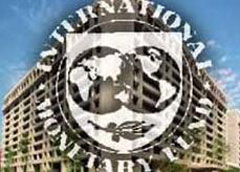Analytics, Baltic, Economics
International Internet Magazine. Baltic States news & analytics
Sunday, 22.02.2026, 05:16
IMF: the Baltic economy may contract "at least" 2% in 2009
 Print version
Print version |
|---|
The Baltic economy may contract "at least" 2% this year, the Washington-based fund said in December compared with the Lithuanian central bank"s October outlook for an expansion of 1.2%. The IMF forecast signals that Lithuania will follow Latvia and Estonia into a recession next year as domestic demand wanes after banks tightened lending, writes ELTA.
The three Baltic countries, which spent almost half a century as communist-run Soviet states, have been hit hard by the crisis as banks saw external funding dry up and exports slowed. Last month Latvia took a 7.5 billion-euro IMF-led loan to strengthen the currency and shore up the banking system.
"Lithuania is in a more difficult position than Estonia," Rosenberg said. "Estonia is the least vulnerable of the Baltics because it has big buffers. It"s been running a budget surplus for a number of years now and so there are fiscal assets," Bloomberg quotes Rosenberg.
Lithuania"s economic sentiment index, which measures expectations in sectors including manufacturing, construction, retail and services, fell to the lowest in six years in December as concerns grow over a recession this year.
Estonia and Latvia lead the EU"s slowdown after contracting an annual 3.5% and 4.6% in the third quarter, respectively. Lithuania"s economy expanded 2.9% for the period. Latvia joined Iceland, Belarus and Hungary and other emerging-market nations in asking the IMF for aid. Latvia"s problems were created by a soaring wages and a credit boom which saw funds channeled into non-tradable industries like real estate, retail and banking, Rosenberg said.
The economy wasn"t diversified enough and officials failed to curtail rapid credit growth or use counter-cyclical fiscal policies to cool the economy off before it was too late, he added.
"Latvia had the highest growth rate in the EU for several years, but it was a bubble," he added.
Moody"s Investors Service said yesterday it had cut Latvia"s foreign-credit rating for the second time in three months amid fears of a deeper-than-expected economic decline. Inflation in Latvia, at 11.8% in November, is the highest in the 27- member European Union, compared with 2.1% in the euro area.








 «The Baltic Course» Is Sold and Stays in Business!
«The Baltic Course» Is Sold and Stays in Business!

